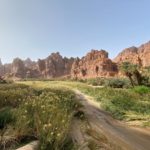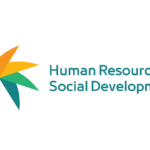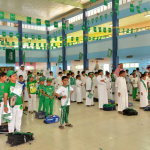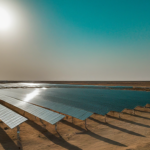
“The EY Future Consumer Index, which questioned 1,018 consumers from Saudi Arabia and the UAE, found that 84 percent of consumers declared that they have changed the products they buy, with a greater focus on value for money and an increased commitment to consume locally made products.”
-Mohammed Al-Kinani for Arab News reports on changes in Saudi buying behaviors as a result of the Covid-19 pandemic. [Arab News]

“Saudi Summer is an invitation to the citizens and residents of Saudi Arabia to explore and get to know their own country better. While we are focusing on providing multiple destinations and experiences for those already in the Kingdom, we are also preparing for international tourists to return, so we will be ready to welcome visitors safely again when the time is right.”
–Fahd Hamidaddin, Chief Executive Officer of the Saudi Tourism Authority, in revealing initial data from the Kingdom’s largest ever domestic leisure tourism campaign. [zawya.com]

“I think being a female photographer in my country is way easier than being a male photographer because people trust women somehow – it’s funny but true.”
-The Phoblographer interviews Saudi street photographer Norah Alamri and features a number of her images. [The Phoblographer]

“…Many authors surveyed in this study are increasingly looking at the region from the perspective of alliances based on shared security interests. These interests centre around the issue of Iran and Shiite revolutionary expansionism (the Iran-Iraq-Syria-Hezbollah-Hamas axis), and the rise of the Islamist movements (driven by Qatar and Turkey, and impacting several states in the Middle East and North Africa).”
-Bader Rock and Rami Dajani authored a Tony Blair Institute for Global Change study of “Trends in Media Opinion on Israel in Saudi and Gulf Media.” [Tony Blair Institute for Global Change]

“The fintech sector in Saudi Arabia is largely driven by young, first generation entrepreneurs who are competing with the largest financial institutions in an extremely tough and price-conscious market.”
-Fintech Saudi’s annual report assesses the progress of the fintech industry in Saudi Arabia over the last year. [Fintech Saudi]

“Any Arab state that is considering following the UAE should demand in return a price, and it should be an expensive price…The Kingdom of Saudi Arabia has set a price for concluding peace between Israel and the Arabs – it is the creation of a sovereign Palestinian state with Jerusalem as capital, as provided for by the initiative of the late King Abdullah.”
-Prince Turki Al-Faisal, writing in the Saudi newspaper Asharq al-Awsat. Prince Turki also voiced understanding for the UAE’s decision, according to Reuters, noting that Riyadh’s close ally had secured a key condition – a halt to Israeli annexation plans. [Reuters]

“While the production of ammonia has many uses—including fertilisers, cleaning products and in manufacturing—perhaps its greatest appeal lies in the ease in which it can be transported over long distances and green hydrogen re-extracted.”
-Ian Simm, writing for Petroleum Economist, analyzes Neom’s recent $5b deal with Acwa Power and U.S.-based Air Products to build the world’s largest hydrogen project. Simm details the cutting edge nature of the project and it’s many renewable energy advantages. [Petroleum Economist]

“It’s very obvious how much impact Fintech has had on the e-commerce industry in the region due to the spread of payment options. Micro-investing and funding is also accelerating due to the ease of reach by new Fintech startups. It’s going to be a very bright future for the new generation I bet.”
-Haitham Bu-Aisha, founding partner at Vision Ventures, speaks with Omar Faidi for CrowdFund Insider. Bu-Aisha added that 6 out of 38 startups in his firm’s technology portfolio are Fintechs and that just five years ago, it would have been “a dream” to launch any business with financial services that were not offered by traditional service providers. [CrowdFund Insider]

“Many assets are already stranded from an oil-price cycle perspective. But when you then add the carbon curve, that takes a bigger chunk out.”
-Christyan Malek, head of EMEA oil and gas research at JPMorgan Chase & Co., comments on the economics of oil exploration in an article by Laura Hurst for Bloomberg Green. [Bloomberg]

“Historically and up until the 1960s, when the majority of the population was nomadic or seminomadic, women were an integral part of the workforce on the Arabian Peninsula.”
–Karolen Eid, Maha Fallatah, and Makio Yamada, writing for the King Faisal Center for Research and Islamic Studies, examine the heritage of women’s participation in the Saudi workforce; why it declined and is now surging. [King Faisal Center for Research and Islamic Studies]











